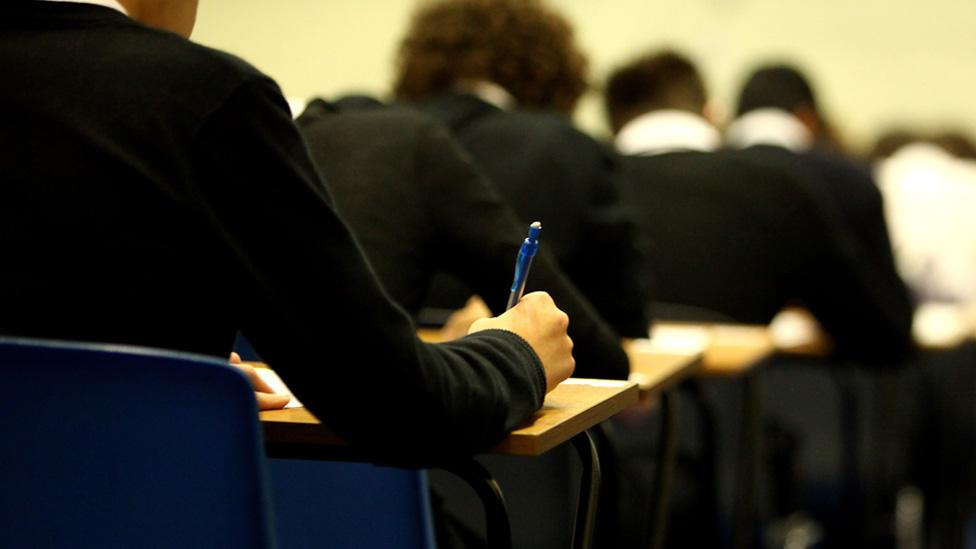Coronavirus sport: What happens when you go from 24 hours to zero?
- Published
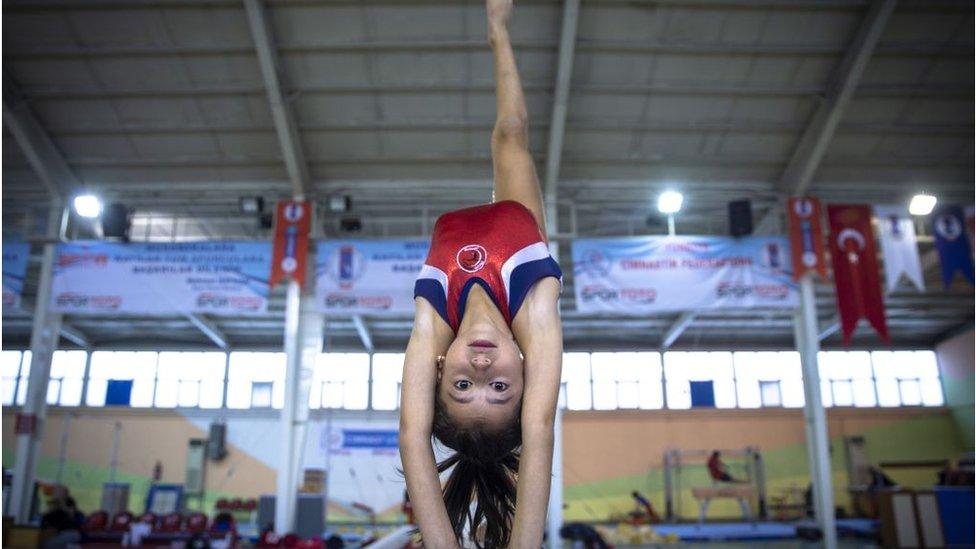
Gymnasts and other athletes have found themselves going from multiple hours of training to zero
What happens to sporty children when they go from 20 hours of training a week to zero?
Due to the coronavirus measures, sports clubs across the world are finding themselves standing still for the first time with no imminent prospect of getting their training routines back on course.
Many have turned to social media to stay in touch with members, using video conferencing and live play-along videos to stay in touch.
A gymnastics club in Livingston has taken it a step further, taking on a vital role in the community.
Like most sports clubs across the UK, West Lothian Gymnastics Club closed its gym earlier this week, leaving hundreds of youngsters housebound.
Many of its performance athletes were approaching peak condition for the Scottish Artistic Gymnastics Championships which was due to take place on 28 and 29 March, and the British Championships in April.
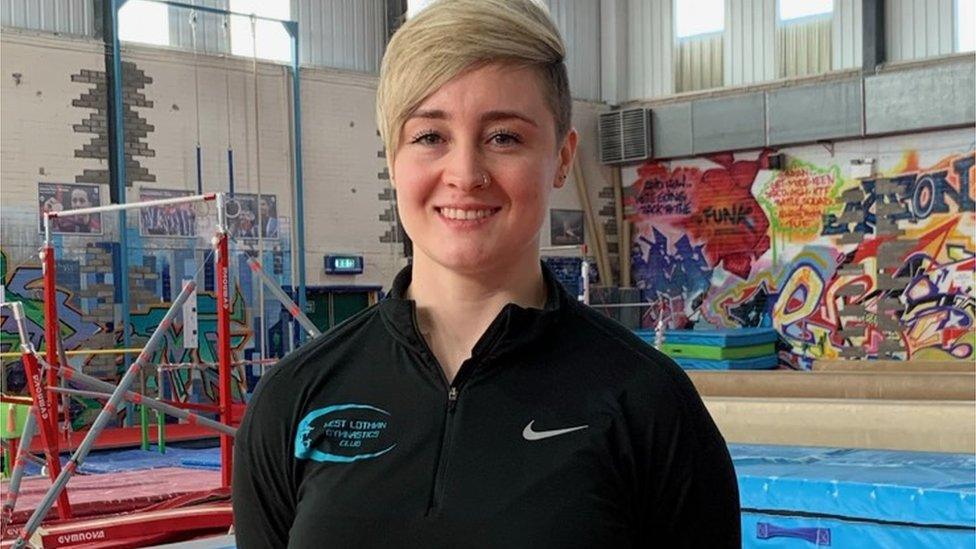
Rebecca Campbell and the rest of the coaching staff are behind the club's move online
As a sport that requires training hours of up to 30 hours per week, the ceasing of gymnastics training could have a massive impact.
The club has worked hard over the past week to produce a programme to address the health, fitness and mental health of its athletes and the wider community.
Rebecca Campbell is the club's head women's coach.
She told the BBC: "We anticipated that we were not going to be able to offer the same service to our members and that at a time like this being a community is key to getting through this difficult time.
"If we can keep everyone involved they are much more likely to still feel part of the club and are also more likely to come back when we open our doors again.
"As much as this is a sport, it is like a family to these children who spend more time here than they do at home and to strip it away is devastating."
Mental health
A small group of coaches has now pulled together a weekly schedule of live interactive sessions to get the children and even older people moving.

Rebecca said: "Now the schools have closed, the kids have been stripped of their entire weekly routine. We are trying to put some of that back.
"We will keep adding segments and posting the videos everyone sends us of them doing the challenges and workouts. We have gym friends in Australia, Spain and the US who will be joining in."
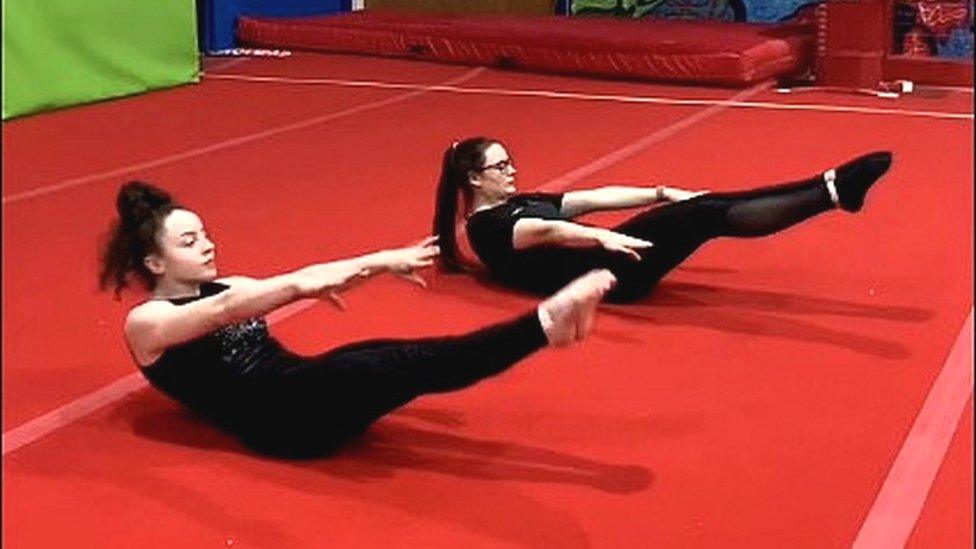
Commonwealth Games gymnast Ellie Russell gets involved in the online coaching
The schedule also includes a weekly exercise session for the over 60s.
And the club is very aware of looking after the children's mental health during a time that could be terrifying for young people.
Rebecca said: "We want to help in any way we can. We will be asking the young people to to tell us how they are using their extra time to improve their lives - whether it is reading more books, spending time with their pets or building their relationships with their siblings.
"We want to help them improve themselves, and keep them as positive as possible."
'Create a new routine'
Dr Paul McCarthy is a sports psychologist and runs the doctorate in sports and exercise psychology at Glasgow Caledonian University.
He says using this time wisely could actually make better athletes in the long run.
He said: "They are losing their typical routine and the best way to adapt to this is to create a new one in the confines of their space.
"It is a good time to address the mental aspect of their training which is the least managed aspect of training."
He said that an obstacle such as the closure of a club makes people adapt to the adversity and introducing new ways to work is something that is inevitable.
He made several suggestions to young athletes in this position:
Start a journal: Recording their experiences and writing down how they have handled it and how they would help someone else deal with it is a valuable lesson.
Use mental imagery: imagine the skills they would be doing and the skills they would like to learn will help them when they get back to training.
Use mindfulness and meditation. Dr McCarthy describes these as "wonderful tools" to advance an athlete and mastering this could turn out to be a positive learned from this difficult situation.
- Published18 March 2020
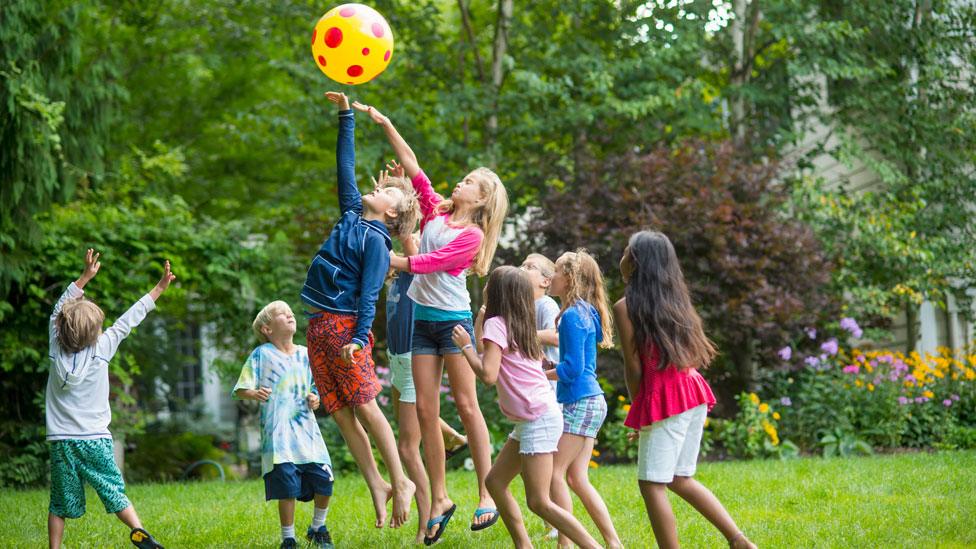
- Published19 March 2020
